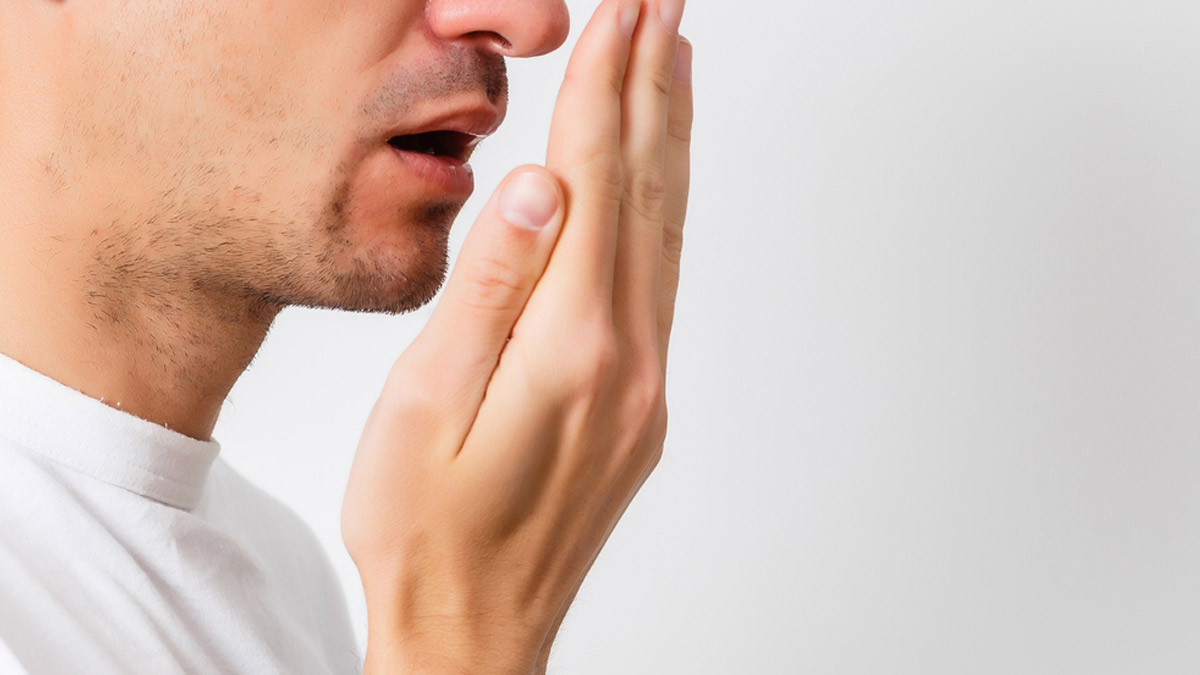
The silent nature of diabetes is what makes it undetectable during the early stages. Patients experience mild to no symptoms, leading to delayed diagnosis and late treatment. In fact, several reports indicate that more than 50% of people are unaware of their diabetic status. It is often why diabetes is referred to as a 'silent killer.’
Table of Content:-
Even if symptoms show, they are either brushed off because of their mild effects or are mistaken for other benign conditions. While some of the most common symptoms include frequent thirst and urination, increased appetite, and unexplained weight loss, the lesser-known and unusual signs are the ones that need utmost vigilance. Speaking with the OnlyMyHealth team, Dr Satyam Chakraborty, Consultant Endocrinologist, Fortis Hospital, Anandapur, shed light on the same.
Also Read: What Does An Ideal Breakfast Look Like For Diabetics: Foods To Eat And Avoid
Fruity-Smelling Breath

Fruity breath indicates a lack of insulin in the body that results in the inability of the cells to receive glucose, said Dr Chakraborty. This condition is also called Diabetic Ketoacidosis (DKA), where the body burns fat for energy and the liver produces a metabolic fuel from the fats, called ketones.
Excess ketones in the breath create a fruity odour. This can be a sign of uncontrolled diabetes and requires prompt medical attention.
As per the US Centers for Disease Control and Prevention (CDC), DKA is most common among people with type 1 diabetes, but even people with type 2 diabetes can develop it.
Dark Patches On The Skin
According to Dr Chakraborty, dark black patches on the neck and other soft tissues like the armpits and elbow knuckles of young adolescents are one of the primary signs of diabetes and insulin resistance. This condition is also called acanthosis nigricans, which commonly occurs in individuals younger than the age of 40 years and is associated with obesity, hypothyroidism, acromegaly, polycystic ovary disease, insulin-resistant diabetes, and Cushing and Addison diseases, as per StatsPearls Publishing.
Sudden Boost Of Testosterone In Females

Hirsutism is a condition in which females experience excessive hair growth in areas where men typically grow hair, such as the face and chest. This occurs due to an increase in androgen linked to insulin resistance, a condition where the body's cells do not respond effectively to insulin, leading to elevated insulin levels in the bloodstream, according to Dr Chakroborty.
Higher levels of androgens (including testosterone) can contribute to hirsutism in women.
Apart from the growth of excess facial and body hair, these hormonal fluctuations, specifically the increased production of androgens, can lead to virilization, which is the development of masculine characteristics in women such as baldness, acne, and deepening of the voice, said Dr Chakraborty.
Additionally, insulin resistance is also associated with Polycystic Ovary Syndrome (PCOS), a common endocrine disorder in women that can cause irregular menstruation, infertility, and hirsutism.
Also Read: How Long Does Prediabetes Take To Progress To Diabetes: Lifestyle Changes That Can Reduce Risk
Delayed Wound Healing

People with diabetes also experience delayed wound healing. This is because the patient's immune system is compromised when they have acute, uncontrollable hyperglycemia, explained Dr Chakraborty.
When the immune system does not work as efficiently, instead of healing, an injury or a wound that occurs during hyperglycemia becomes infected, which is one of the reasons why diabetic patients get diabetic foot ulcers, which consequently lead to amputation.
Conclusion
Managing blood sugar levels and insulin resistance through lifestyle changes, such as maintaining a healthy weight, exercising regularly, and, in some cases, using medications, can help address both the common as well as the unusual, lesser-known symptoms. Women experiencing hirsutism and irregular menstruation should consult with a healthcare professional for a proper diagnosis and personalised treatment options. In addition, it is also important to note that an unexplained fruity-smelling breath or slow wound healing should not be overlooked as well.
Also watch this video
How we keep this article up to date:
We work with experts and keep a close eye on the latest in health and wellness. Whenever there is a new research or helpful information, we update our articles with accurate and useful advice.
Current Version